THUMB ABDUCTION IN PATIENTS WITH CMC ARTHRITIS? HOW DO YOU MEASURE?
Filed under Evaluation
Article Review
THUMB ABDUCTION IN PATIENTS WITH CMC ARTHRITIS? HOW DO YOU MEASURE?
Corey McGee PhD, OTR/L, CHT , Virginia O’Brien OTD, OTR/L, CHT , Jennifer Skye MS, OTR/L, CHT , Katherine Wall MOT, OTR/L , Thumb Carpometacarpal Palmar and CMC Radial Abduction in Adults with Thumb Carpometacarpal Joint Pain: Inter-rater Reliability and Precision of the Inter-metacarpal Distance Method, Journal of Hand Therapy (2021), doi: https://doi.org/10.1016/j.jht.2021.03.001
THE SKINNY: Hand osteoarthritis is a common condition seen by hand therapists. The thumb joint, in particular, is susceptible to arthritis, and these arthritic changes can lead to contractures of the first webspace, known as a thumb adduction contracture. A common practice for measuring these contracture(s) is to use goniometric measurements to measure radial and palmar abduction, which has been shown not to have the best reliability. The purpose of the study was to determine the inter-rater reliability and precision of using an inter-metacarpal distance method test (IMD) on individuals with CMC arthritis
IN THE WEEDS: Two certified hand therapists of differing clinical and educational backgrounds measured the IMD in patients with a confirmed CMC arthritis diagnosis. The therapist located and marked the 1st and 2nd metacarpal heads at the dorsal midpoints of the joints. A digital caliper was used to measure the distance (mm) between these two points. There were a total of 22 subjects and 28 thumbs.
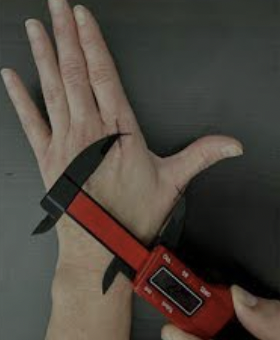
McGee, C, (2021). Figure 3Radial Abduction IMD Measurement. https://www.jhandtherapy.org/article/S0894-1130(21)00041-7/fulltext
BRINING IT HOMEL: Through statistical analysis is was determined IMC for measuring radial and palmar abduction had excellent reliability, and the precision was found acceptable to excellent. Making this IMD a great choice for measuring thumb abduction.
RATING: This article was well written and can change the standard of practice for measuring thumb abduction. CMC arthritis can cause changes in the joint(s) that lead to loss of palmar and radial abduction and other problems that significantly impact hand function. Therapists play an important role in managing CMC arthritis specifically thumb CMC adduction contractures. The IMD is a more accurate way to track clinical changes. Shortcomings of the study include a small number of participants, even though it was adequately powered. This is an excellent article, and I encourage you to read it for more details.
2 Comments
Leave a Comment
More To Read
Graded Motor Imagery in Hand Therapy
The 3 Stages of Graded Motor Imagery We’ve all heard of mirror box therapy, but do you know the details of how it works? There’s actually 3 stages involved that exercise the brain and take advantage of its plasticity. There is a great deal of evidence supporting these three stages and you can use them…
Read MoreDart-throwing Angle in Hand Therapy for Scapholunate (SL) Ligament Injuries.
Does Object Height Affect the Dart Throwing Motion Angle During Seated Activities of Daily Living? Cohen, Y., Portnoy, S., Levanon, Y., Friedman, J. (2020). Does object height affect the dart throwers motion angle during seated activities of daily living. Journal of Motor Behavior, (52) 4. Article Review By: Rita Steffes The Skinny: Dart Throwers Motion…
Read MoreMultiple Avenues of Pin Site Care in Hand Therapy
By: Megan Prather The prevalence of external fixation with pins in the upper extremity setting and the high rates of pin site infection make identifying a protocol for pin site care important for therapists. Across literature, there are many different pin site care protocols varying in frequency, solutions, materials, and manual cleaning. Despite many studies…
Read MoreSign-up to Get Updates Straight to Your Inbox!
Sign up with us and we will send you regular blog posts on everything hand therapy, notices every time we upload new videos and tutorials, along with handout, protocols, and other useful information.

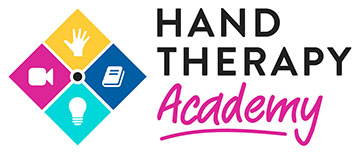
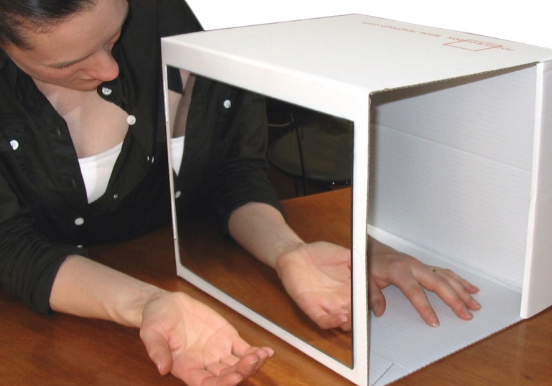
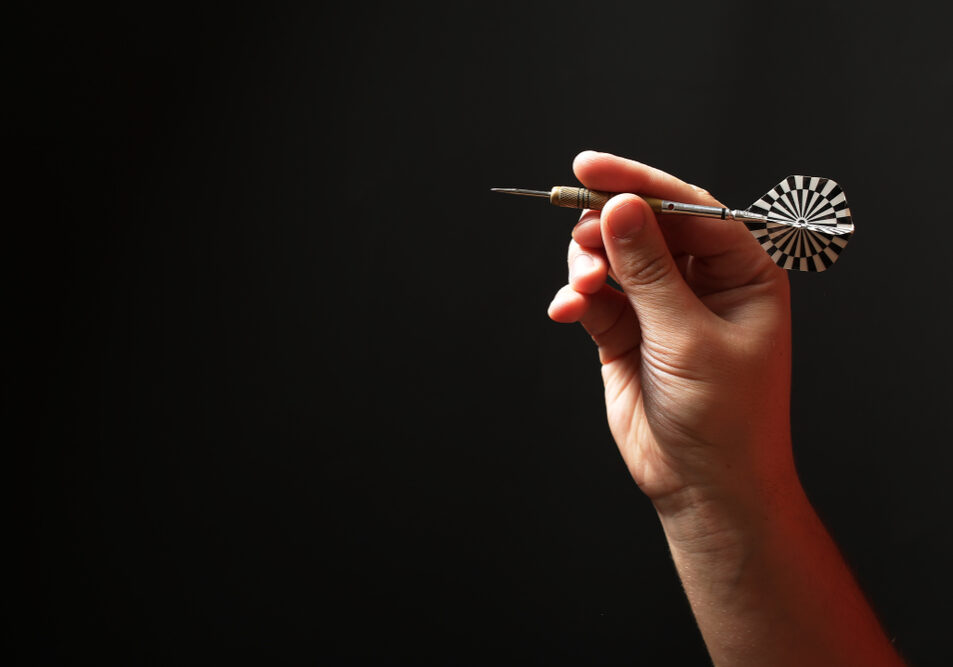
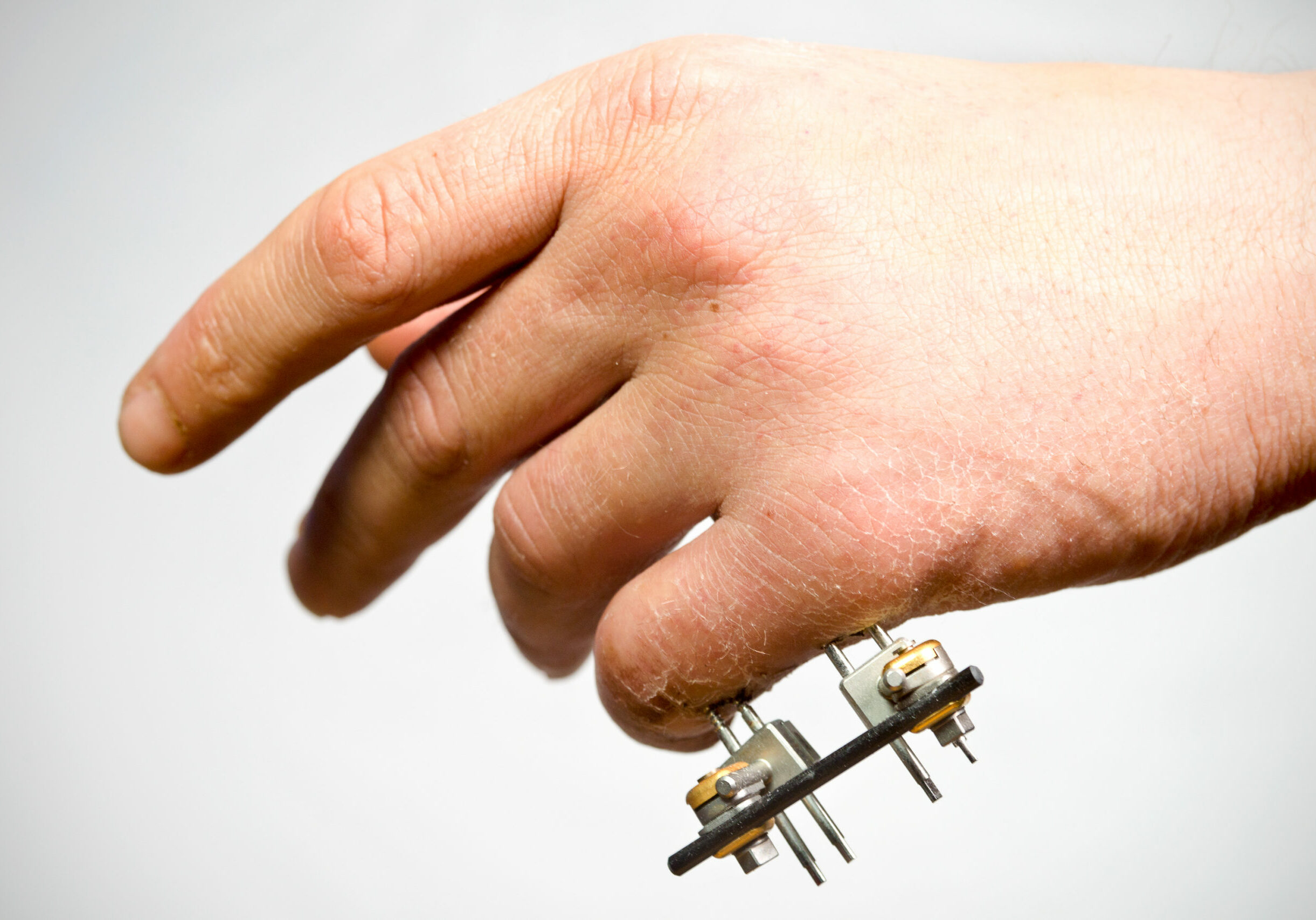

thanks for sharing! 🙂
Thanks for your commitment and publications to advance our field.
Miranda